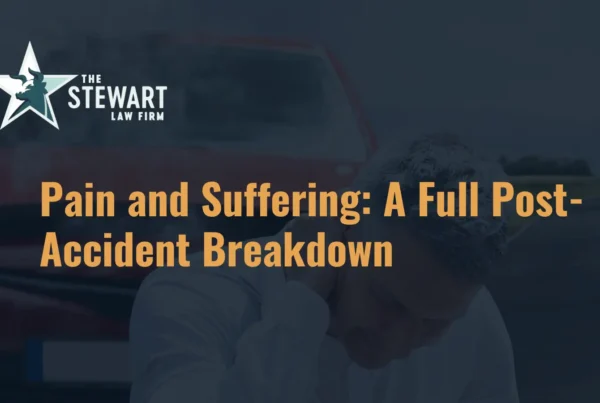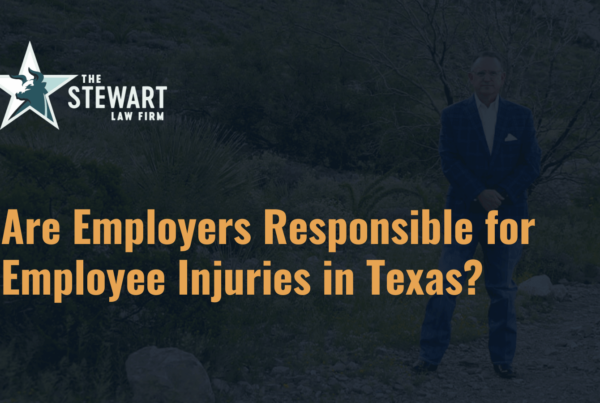When you’re injured at work, your first thought may be to file a workers’ compensation claim to help pay for your medical bills and lost wages. However, this isn’t your only option for financial recovery. While you do not have to establish fault in a workers’ compensation case, you can receive additional benefits through a personal injury lawsuit if you establish that the party guilty of your injuries was negligent.
The attorneys at The Stewart Law Firm understand the distinction between workers’ compensation and personal injury claims in Texas and can help determine the right decision to pursue for your case. Here’s what you need to know about workers’ comp and personal injury suits.
Determining Fault in a Texas Workers’ Compensation Case
Any employee injured on the job is entitled to workers’ compensation benefits, regardless of who was at fault. If you are injured, you do not need to prove that your employer or co-workers did anything negligent for you to receive compensation for your work injury. Even if your own negligent actions caused your injuries, you are still entitled to workers’ compensation benefits.
In a personal injury lawsuit, such as one for a slip and fall case, you must prove that a third party’s negligent actions directly resulted in your injuries. Simply showing a dangerous condition and an injury isn’t enough. You must establish that the incident and your injuries would not have occurred if it weren’t for their negligence. This direct connection is essential for establishing responsibility and ensuring a successful claim.
What Damages Can You Receive In a Workers’ Compensation or Personal Injury Claim?
Another major difference between workers’ compensation and personal injury claims is the damages you can receive.
In a personal injury case, you are entitled to many forms of damages, including:
- Medical bills
- Future medical expenses
- Lost earnings
- Lost earning capacity
- Permanent impairment
- Loss of enjoyment of life
- Pain and suffering
- Punitive damages
In contrast, you cannot get compensation for pain and suffering and other non-economic damages through a workers’ comp claim. Some of the damages you may receive from a workers’ compensation claim include:
- Medical benefits
- Temporary, Impairment, or Supplemental Income Benefits
- Death and burial benefits
The Legal Process and Timeline
The legal processes involved in workers’ compensation and personal injury claims also differ considerably.
- Workers’ Compensation: The workers’ compensation system in Texas has its own administrative process. Claims are typically filed with the Texas Department of Insurance, Workers’ Compensation Division. While it aims for a more streamlined process than litigation, disputes can arise regarding the compensability of the injury, the extent of medical treatment, or the calculation of income benefits. There are specific timelines for reporting injuries and filing claims.
- Personal Injury Claims: Personal injury claims often involve a more formal legal process, potentially leading to litigation in civil court. This can involve filing a lawsuit, engaging in discovery (exchanging information with the opposing party), and potentially going to trial. The timeline for resolving a personal injury claim can vary significantly depending on the complexity of the case and whether a settlement can be reached outside of court.
Navigating the specific procedures and deadlines associated with each type of claim can be complex. The attorneys at The Stewart Law Firm are well-versed in both the workers’ compensation administrative process and civil litigation, ensuring your claim is handled efficiently and effectively within the applicable timeframes.
Contact Us Today for a Consultation
Proving intent and negligence can be difficult, but the compensation you can receive is worth the fight. If you are looking to file a personal injury claim against an employer or a third party, contact us at The Stewart Law Firm to schedule your consultation.





